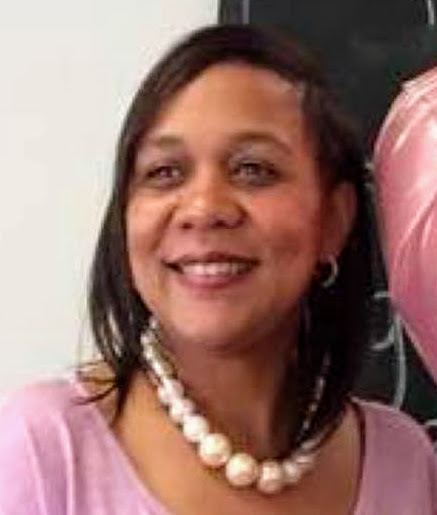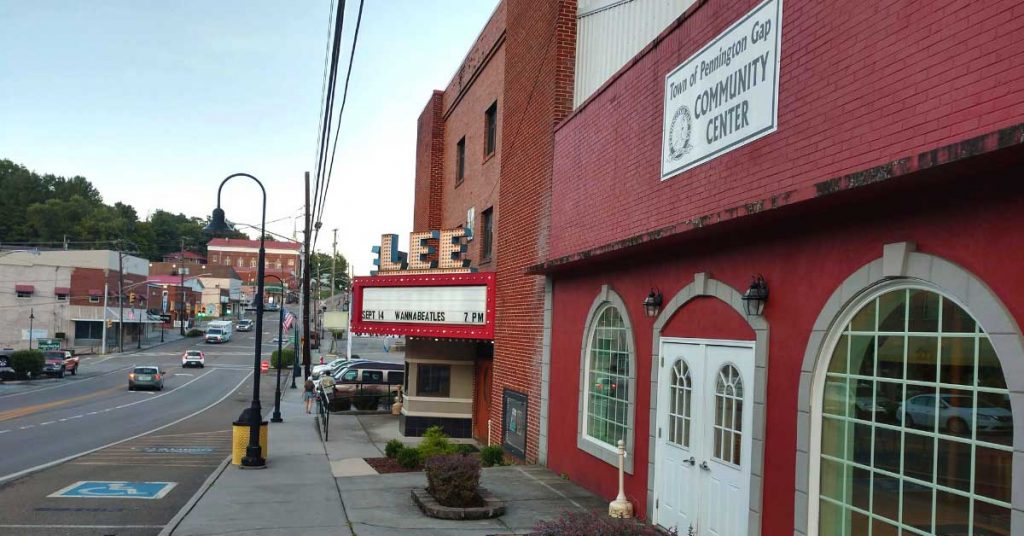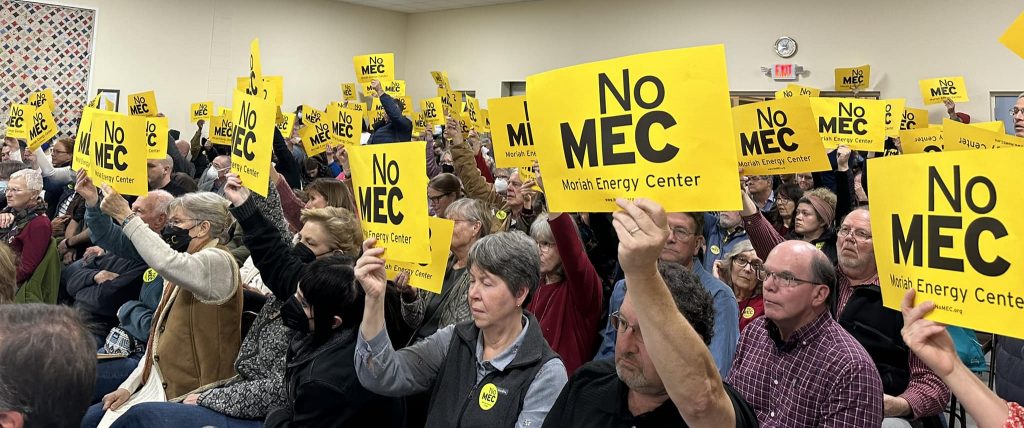Black Appalachian Coalition Aims to Shift Narrative on Energy, Other Issues
Appalachia’s people of color have borne greater social and economic burdens, on average, than their White counterparts, but their stories are often left out of policy discussions about energy and other issues in the region.
A new coalition is now seeking to amplify those unheard voices.

The Black Appalachian Coalition is an initiative of Black Women Rising. Bishop Marcia Dinkins, the group’s founder and executive director, recently talked with the Energy News Network about its work to shift from a single story about Appalachia.
Q: Why do we need conversations with Appalachia’s people of color about the effects of fossil fuels, pollution and other problems?
A: “We should be having these conversations because Black people are impacted,” Dinkins said. “And when we look at the inequities with regards to exploitation, extraction and exclusion — historically and presently — it continues to divest from these voices.”
As she sees it, people often have one view of America and a separate view of rural America that is primarily White. By numbers, Black people are a small minority in many parts of Appalachia. “But it does not mean there should be an absence of these rural voices.”
Q: What’s the result of a system that doesn’t seek out and listen to stories from people of color?
A: “It keeps them outside of policymaking. It keeps them outside of being a part of legislation that’s moving to improve the quality of life for others, but not for them,” Dinkins said. “They’re outside the conversation. They’re not at the table.”
Q: Why are energy issues especially relevant for communities in Appalachia?
A: “Fossil fuels have been a contributor or a conduit for allowing systemic racism,” Dinkins said. And energy issues are intricately intertwined with racial disparities. “Black voices need to be in this conversation because they’re the ones who speak best to systemic racism and how fossil fuels have impacted their communities.”
Appalachian states have long been centers for coal mining and various coal-intensive industries. More recently, the combination of fracking and horizontal drilling has accelerated natural gas extraction, along with the range of disruptions it often brings. Black communities are especially affected by those activities and by industries that burn fossil fuels in factories, steel mills and so forth, Dinkins said.
Q: BLAC hosted listening sessions this fall, where individuals from communities in Appalachian Ohio, Pennsylvania, West Virginia and Kentucky shared insights. What were you looking to find out?
A: “Our goal for these listening sessions is to hear the voices of people about their lived experiences and to walk alongside them to identify solutions for their community,” Dinkins said. In other words: What are people of color experiencing as a result of pollution, a lack of infrastructure, limited opportunities, disparities in resources and other issues in their areas?
People’s stories have also highlighted disparities that reflect systemic racism. Parks in White areas may get funding and modern restrooms, for example, but not one in a Black neighborhood. Gaps in educational achievement are linked to school funding based on property taxes, and Black people have had less economic wealth, on average, than White people. “We know that all of these things connect,” Dinkins said.
Q: How can those experiences lead to policy solutions?
A: BLAC is asking people what they want, rather than telling them what they need, Dinkins said. “What is the change that they believe should happen or occur in their communities to improve their quality of life?” Once people have answered those questions, then policy solutions can be proposed. And the solutions will often differ based on a community’s size, available resources and other factors.
For example, if residents are impacted by pollution from an industrial plant that uses fossil fuels, they don’t want the pollution to continue. But they may not necessarily want the plant to shut down and hurt the local economy. And they may resent comments that they should move away if they don’t like the pollution. Instead, people near the plant may want stricter enforcement of environmental laws and regulations, so plant owners are held accountable for the harm they cause. And they may want the plant’s owners to rectify pollution problems that are hurting people’s quality of life.
“People aren’t just looking for the big things,” Dinkins added. “It is the little things as well.” Weatherization can cut heavy energy burdens from electricity and gas bills. Better public transportation can eliminate multi-hour grocery store trips. Still others want workforce development and opportunities for job training, as well as ways to increase entrepreneurship and investment in depressed communities.
Q: Why is it important to look beyond general problems in Appalachia to specific impacts on people of color?
A: Economic depression and other problems are widespread in Appalachia, but people of color often feel those impacts more severely.
“Black people have had big houses on their backs that they’ve had to carry. At some point in time, you’re bent over for so long that you’re stuck in a position that you can’t look up,” Dinkins said. “And if you can, it’s not too far.”
Also, when the single story policymakers hear is about the problems of White people, solutions will focus mainly on them. Even if solutions could technically help everyone, lack of a car or other practical considerations may still exclude many people of color, Dinkins said.
Q: Why is it especially important now for the public and policymakers to hear from Black people in Appalachia?
A: “This is an important moment in history,” Dinkins said. Congress just passed a massive infrastructure bill. Other bills to address climate change remain pending. Yet even programs that sound good on paper won’t address the needs of Appalachia’s people of color unless they get a chance to tell their stories and to be at the table for fleshing out those programs, Dinkins said.
Q: Why have those voices been left out of policy discussions for so long?
A: Many people’s view of Appalachia stems from a “nostalgic narrative that romanticizes whiteness inside of rural America,” Dinkins said. Black and Native American people have long lived in Appalachia. Yet many missionaries and others didn’t see them as deserving, she said. “So the failure to talk about these things, it starts politically: Which communities are deserving [of help and public resources], and which communities are undeserving?”
Q: How is that narrative still promoted today?
A: “Black erasure” efforts are still at work to suppress people’s views and voices, and those efforts reinforce systems “that were built on racist policymaking in the first place,” Dinkins said. That lets privileged groups hold onto their power.
“By eliminating truth and not allowing certain things to be taught in school, it only gives you one side of the story.” That reinforces “Black invisibility and the continuation of policymaking that only advances the agency of the policymaker and keeps all these things like fossil fuels in place.”
Q: Why is BLAC important as a safe place for people of color to share their stories?
A: “Racism is a powerful dynamic,” Dinkins said. People of color don’t always feel safe speaking out in other public forums. As a result, many people feel a sense of despair and inertia, she said. BLAC provides a safe space for people to share stories.
“It is also the fact of Black people knowing that their stories are worth being told and worth being heard,” Dinkins said. “Then we can move the needle” on changing policies and making progress against racism.
“But nobody wants to fight alone.”
This article first appeared on Energy News Network and is republished here under a Creative Commons license.![]()
Related Articles
Latest News

Leave a comment
Your email address will not be published. Required fields are marked *




